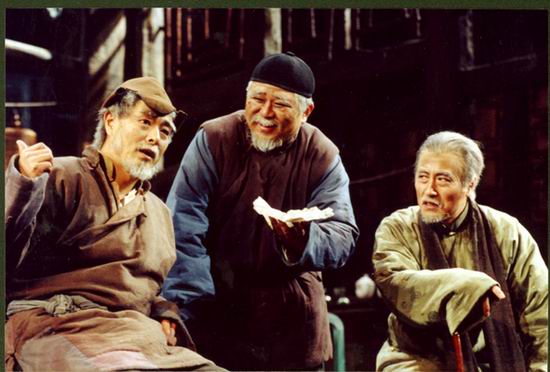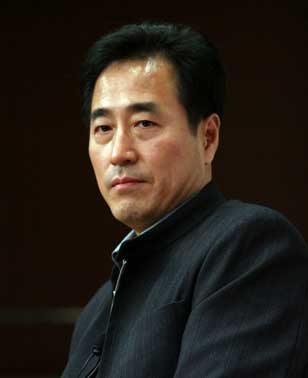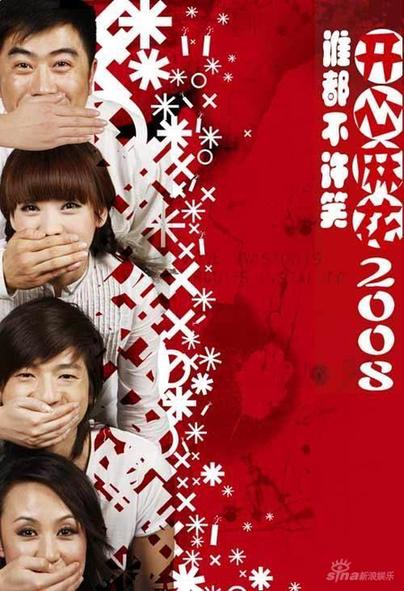To be or not to be? Chinese theater struggles to survive
In Beijing alone, 427 new theater productions were staged from January 1, 2009 to March 18, 2010, an average of a play a day. Across China, private theater companies are mushrooming. And western companies are swarming to China looking for opportunities.
Superficially then, the Chinese theatrical market is booming. But in fact, Chinese theater companies, state-run and privately-owned, large and small, are struggling. Their business is far from profitable. And the more plays they put on, the more money they lose.
|
|
|
A still from the stage play "Teahouse" produced by Beijing People's Art Theater |
Even Beijing People's Art Theater, China's most prestigious theater company, cannot balance its books. Its annual budget of 70 million yuan (US$10.3 million) includes a 50 million yuan (US$7.4 million) government subsidy.
Established in 1952, the company boasts a strong repertoire including classics like Teahouse and Thunderstorm, and star actors like Pu Cunxin, Song Dandan and Feng Yuanzheng. It has a well-equipped 5,000-square-meter theater at Wangfujing, a prime location in Beijing. In September 2009, the company premiered Wotou Huiguan, a smash hit, raking in 18 million yuan (US$2.7 million) at the box office in just four months.
None of this, however, can ensure decent wages for its actors. A report posted on the Internet revealed they are paid between 900 yuan (US$132) and 2600 yuan (US$381) per month. Actor Yang Lixin said the report was basically accurate.
"Stage actors are not paid as well as people imagine," Yang said, adding that low wages force them to take TV or movie work between productions.
|
|
|
Actor Yang Lixin |
"I love stage plays. Facing the audience on stage, I feel a greater sense of accomplishment than in a TV or movie," he said. "But for me, it is a must to accept roles in TV dramas or movies just to make a living." Yang has appeared in many TV shows, including China's first sitcom I Love My Family (Wo ai wo jia, 1994) which made him a household name.
In 2002, the central government announced plans to reform the culture industry. It gradually withdrew funds from state-run theater companies in the hope of making them profitable. The measures put enormous pressures on companies who knew only too well how difficult it is to cover their costs from box office revenues, let alone make profits.
Shanxi-based Taiyuan Theater Company spent one million yuan (US$146,000) producing the play Crazy, Crazy (Feng kuang de feng kuang). But only after a run of 107 performances across the nation did the play finally turn a profit.
State-owned companies face competition from their privately-owned counterparts. In Shanghai and Beijing, private companies dominate, with up to 90 percent of market share.
But Zhang Chen from the private theater company Beijing Free Elements Entertainment Company complains about unfair competition from state theaters that receive government support.
To boost their presence in the market, private companies have developed different strategies. They are not as constrained by tradition as their state-run counterparts and enjoy greater creative freedom.
|
|
|
A poster of "Kai xin ma hua" comedy |
Some companies concentrate on crowd-pleasing shows. Beijing Free Elements Entertainment Company regularly stages "kai xin ma hua," a popular mix of comedy, fashion, social comment and dance. It is particularly popular among young people. And to cut costs it performs in cheaper venues.
The Leizile Laugh Factory is even more radical in its approach to fundraising. For a fee of 137,500 yuan (US$ 20,100) it will produce a play featuring a company brand. It has staged productions for Italian sports brand Kappa and Chinese fitness chain Nirvana, but business has not turned out as well as expected. It ended up 20,000 yuan (US$2.9 thousand) in the red in 2008. Despite this, managers remain upbeat as they believe they are gradually building up the company's brand.
But many small private companies are losing serious money. After just four months in business, Star Theater is hemorrhaging money and its boss Fan Xing feeling the pressure. And Penggao Theater's boss, Wang Xiang said his company loses at least 200,000 yuan (US$29,300) each year.
 0
0 










Go to Forum >>0 Comments